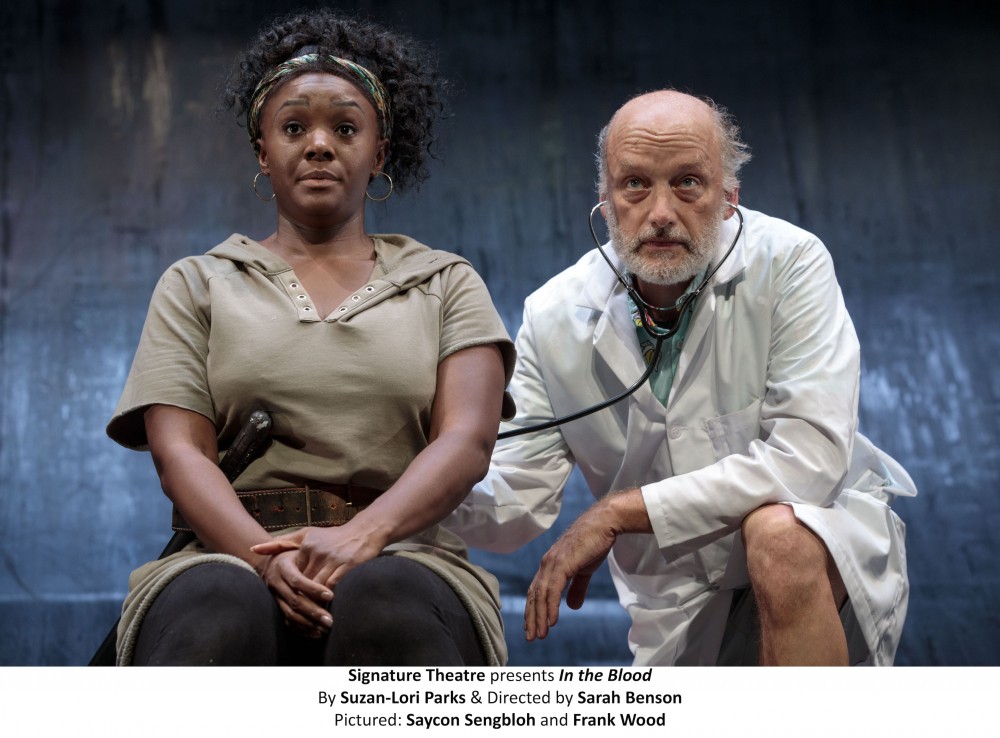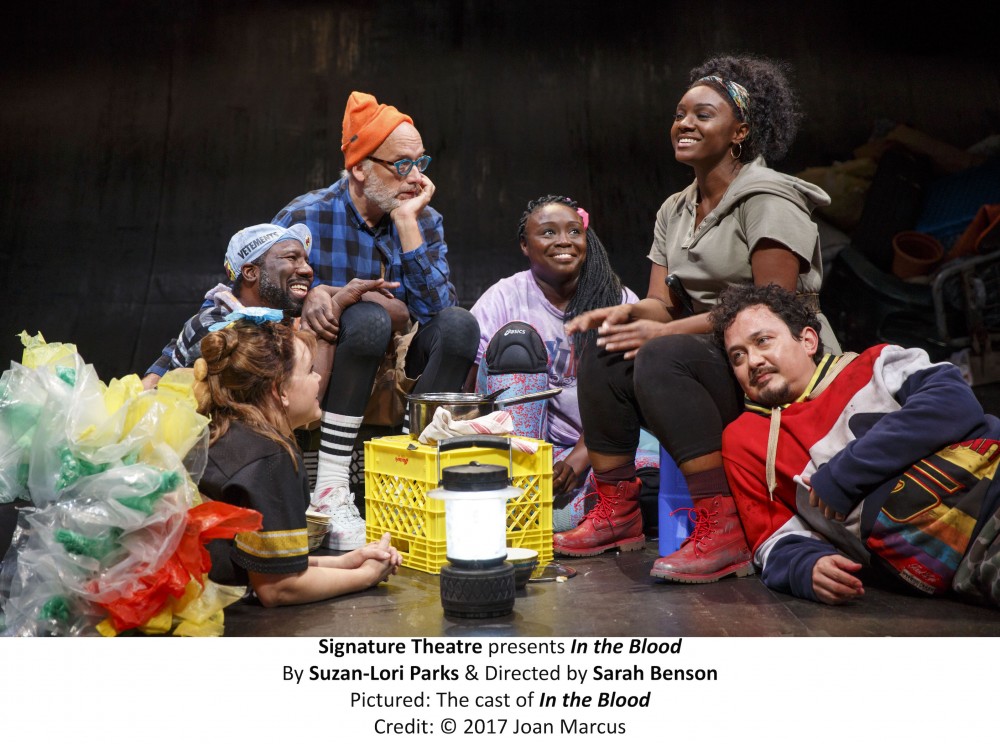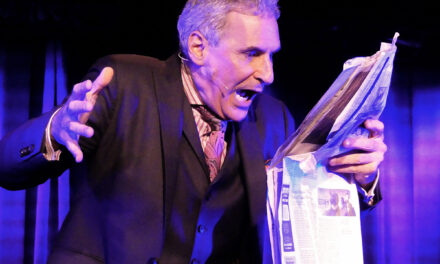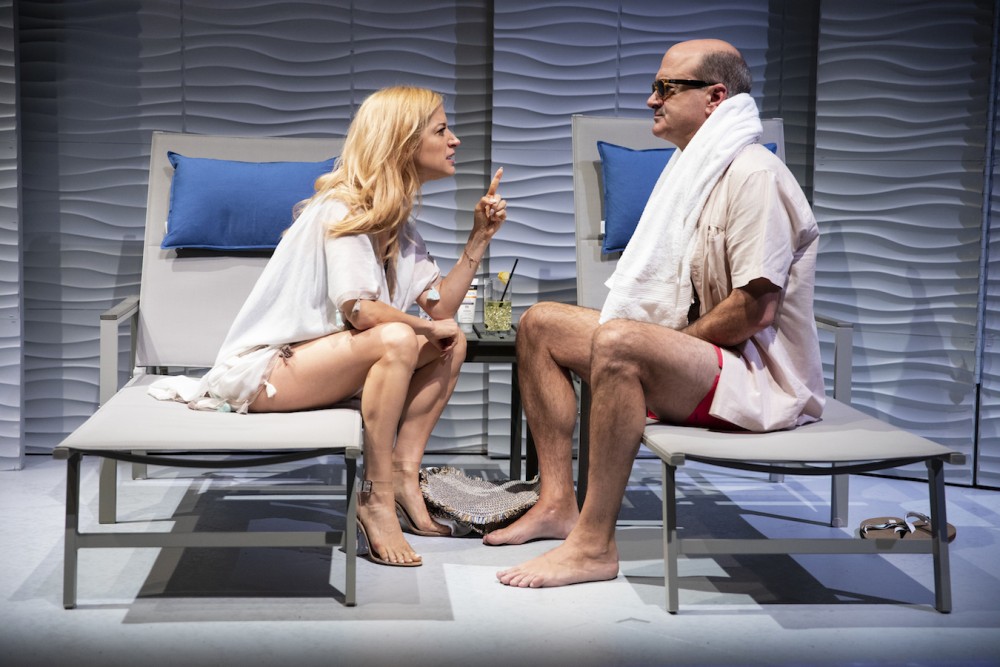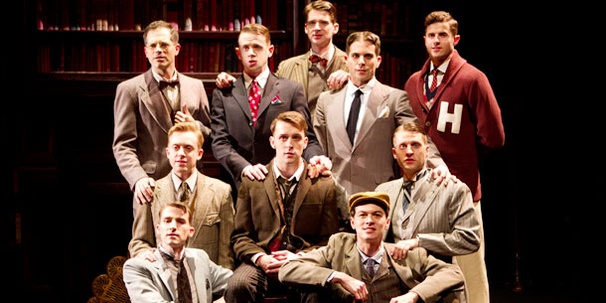By Brian Scott Lipton
The Place: Here. The Time: Now. It takes mere minutes, maybe even less, to realize how accurate those words remain regarding Suzan-Lori Parks “In The Blood,” even if director Sarah Benson’s first-rate production at the Signature Theater is taking place 20 years after the work was written. (It is being presented, alongside Jo Bonney’s equally brilliant version of the author’s “Fucking A,” as Parks’ “Red Letter Plays.”)
With great (if not always economic) precision and a seemingly hard-earned wisdom, Parks reminds us how judgmental and unfair society-at-large can be to anyone, but especially to poor, minority women. Indeed, within seconds of entering her “home” – a garbage-filled underpass beneath a bridge (magnificently created by Louisa Thompson), Hester (the extraordinary Saycon Sengbloh) is greeted by a written word she can neither read nor write: “SLUT.” Yet, somehow this 30-something woman instinctively understands those four letters are a condemnation of her life – more specifically the fact that she has borne five children from five different men, and has no visible means to support any of them.
We never learn who wrote the word; but by the end of the two intermissionless hours, we discover it could just as easily have been a stranger as one of Hester’s so-called friends or former lovers: the snooty Welfare Lady (a superb Jocelyn Bioh), the seemingly kindly roadside doctor (the reliable Frank Wood), the pious yet highly hypocritical Reverend D (an excellent Russell G. Jones), the greedy Amiga Gringa (an effective Ana Reeder), or Chili, her former true love (a very good Michael Braun) who reappears suddenly offering Hester a chance at a better life before snatching her dream (and wedding dress) away almost instantly.
In an intriguing twist, all five of the aforementioned performers also play Hester’s kids, ages 2 through 14, and while we never really forget we’re watching adults play dress up, they are nevertheless a convincing troupe. What’s most important is that we see Hester’s love for each of them: “my treasures, my joys” she calls them. And those moments of affection make it even more heartbreaking when, after her hope of “getting a leg up” has apparently evaporated, we also discover how quickly she can abandon them or turn on them. (To Sengbloh’s immense credit, she never shies away from the play’s most difficult moments.)
Part of Parks’ accomplishment is that she never idealizes Hester, who eventually takes some responsibility for how badly her life has turned out. And while she has undoubtedly been victimized (especially sexually), she also refuses to play the victim – which proves to be both her strength and her undoing. And in the end, we’re left to ponder: Is Hester’s tragedy her fault, the result of societal indifference, or mere inevitability? The blood goes to your head thinking about it.
“In the Blood” continues at the Griffin Theatre at The Pershing Square Signature Center (480 West 42nd Street) through October 15. Call 212-244-7529 or visit www.SignatureTheatre.org for tickets.


